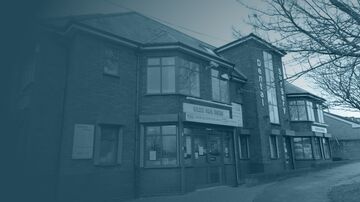
Fillings
Fillings are a common dental treatment used to repair a cavity that has formed in your tooth or to treat a tooth that has suffered trauma.
What are fillings?
Tooth cavities are caused by decay where the tooth enamel has softened due to the plaque acids that break down foods and sugars in your mouth attacking your teeth.
A good oral hygiene routine at home and regular dental appointments will help to prevent cavities from forming in your teeth. Should you need a filling, our professional dental team at Blackheath Dental practice offers a free consultation and a range of treatments to help keep your mouth, teeth and gums healthy.
What types of fillings are available?
Depending on the extent of tooth decay, location of your tooth and the level of repair needed there are a number of filling options.
Dental amalgam fillings, also known as silver or mercury fillings are available on the NHS and use a metallic compound containing mercury and is the most common type of tooth filling.
Cosmetic white composite fillings are gaining popularity because they match the natural colouring of your individual tooth and are bonded to the original tooth structure. White fillings give a natural appearance and require less upfront tooth preparation than traditional metal fillings making them a less destructive restoration choice.
Do fillings need to be replaced?
Mercury fillings, available on the NHS, are extremely durable and generally won’t need to be replaced unless the tooth and/or filling has been severely damaged. Amalgam fillings will usually be recommended for your back teeth as they are less visible.
White composite fillings are constructed from a plastic resin that is less durable than dental amalgam fillings so may need to be replaced. The frequency of replacement will depend on your oral hygiene routine at home and the regularity of professional dental checkups.
In the case of a broken filling, you should treat this as a dental emergency to reduce the chances of a bacterial infection affecting the tooth and causing you unnecessary pain. Call the practice immediately.
This is the best dental practice I’ve ever been with. Brilliant dentists, nurses and receptionists. Very caring with nervous patients. So glad I registered here, absolutely fantastic and HIGHLY recommended!
NHS Pricing bands
Transparent pricing for NHS treatments
Patient charges correct as of April 2023
We're accepting new NHS patients
Treatment Band One
- An examination and diagnosis (e.g. x-rays)
- Advice on how to prevent future problems
- A scale and polish, if required
If you need to see a dentist immediately, an urgent NHS appointment costs £23.80.
£26.80
Treatment Band Two
- Everything in band one, plus...
- Any further treatment such as fillings or root canal work
- Extractions, if your dentist needs to take out one or more teeth
£73.50
Treatment Band Three
- Everything in bands one and two, plus...
- Crowns, dentures or bridges
- This includes more complex procedures.
You only pay once for the highest treatment band, even if multiple treatments are required.
£319.10
Frequently asked questions
How can we help?
There are a few things you can do to help prevent dental emergencies. First, be sure to brush and floss your teeth every day. This will help remove plaque and bacteria from your teeth and gums. Second, see your dentist regularly for checkups and cleanings. This will help to prevent small issues from becoming more serious. Sometimes, a dental emergency occurs as a result of injury or trauma. In this case, there isn't much you can do to prevent it, but wearing appropriate protective equipment when taking part in sports and other leisure activities can help to protect your teeth and gums fro injury.
Do you still have questions?
We offer excellent care and advice regarding our wide range of treatments to all of our patients.
Contact our main practice
0121 561 3526Find your nearest practice
Hear from our happy patients













